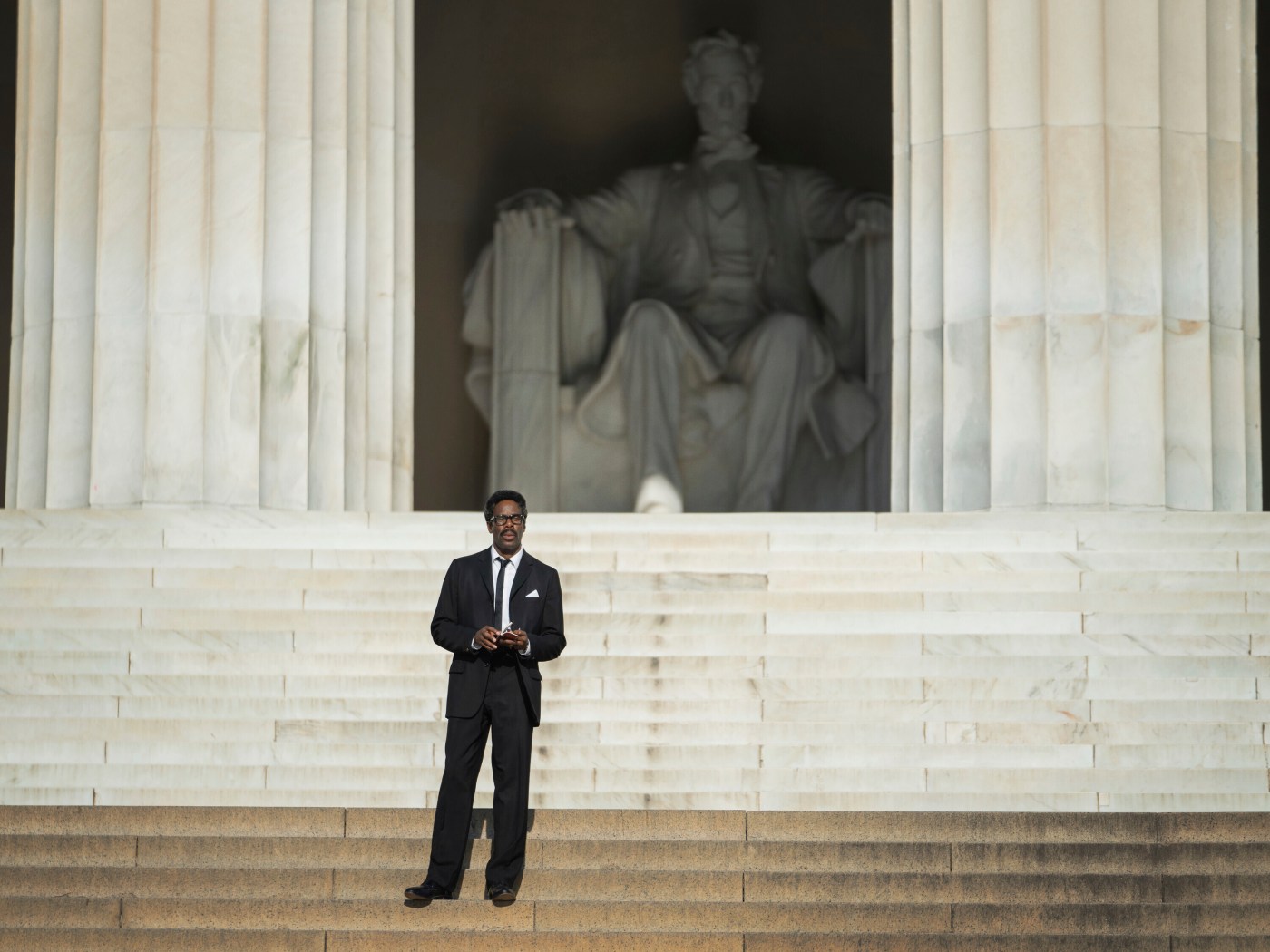
Coleman Domingo brings “Rustin” into top tier
“Rustin”
Rated PG-13. At the Landmark Kendall Square
Grade: B+
Coleman Domingo is the reason to see “Rustin,” George C. Wolfe’s often moving, nicely staged and dramatized depiction of the events and lives that accompanied the conception and implementation of the historic and unprecedented 1963 March on Washington for Jobs and Freedom. The film’s executive producers are no less than Michelle and President Barack Obama, working with Netflix.
The screenplay by Julian Breece (TV’s “When They See Us”) and Academy Award-winner Dustin Lance Black (“Milk,” “J. Edgar”) begins by telling us that in 1954 the U.S. Supreme Court rules that “segregation is unconstitutional.” We see ketchup poured over a young Black woman seated at a counter in the South and a little girl under protection on her way to a newly integrated school.
Martin Luther King Jr. (a powerful Aml Ameen) is the brilliant architect of the Montgomery, Alabama bus boycott. Congressman Adam Clayton Powell, Jr. (Jeffrey Wright) of Harlem is a fiery voice for equality. Roy Wilkins (Chris Rock) runs the NAACP with a firm hand. A. Philip Randolph (theater legend Glynn Turman), who formed the pioneering Black union, the Brotherhood of Sleeping Car Porters, is called out of semi-retirement. A doomed Medgar Evers (Rashad Demond Edwards) is eloquently heard and soon cut down. Unique among these men is Bayard Rustin (Domingo), an outspoken, openly gay Black man, who has a brilliant mind for organizing and for inspiring young people. Rustin has an on-again, off-again affair with a young, white colleague (Gus Halper) and a hot flirtation with a married preacher named Elias Taylor (Johnny Ramey).
The film tells the fascinating story of how the eccentric and outgoing Rustin conceived of and, with the help of dozens of young workers, made possible the historic gathering of 250,000 people on the mall in Washington, D.C. for a non-violent protest for civil rights. Some of Rustin’s cohorts disapprove of his homosexuality. MLK’s kids call him, “Uncle Bayard.” He was forced to resign from the NAACP. When he later organizes the March, Rustin chooses not to include the NAACP at first, although he and Wilkins enjoy a rapprochement. When someone mentions that famous actors, including Harry Belafonte, Marlon Brando and Charlton Heston, are coming to march, someone shouts, “Moses.”
Women are underrepresented in “Rustin,” As Dr. Anna Hedgeman who organizes churches across the country, CCH Pounder asks out loud why so many important women have not been enlisted. As civil rights giant Ella Baker, Audra McDonald is sidelined, and in another strange development, Malcolm X gets only a shout-out. Young militants inform non-violent Gandhi enthusiast Rustin that he is “irrelevant.” Is the Nation of Islam even brought up? We hear about, but do not see segregationist Dixiecrats Bull Connor of Alabama and Strom Thurmond of South Carolina.
“Rustin” makes a worthy connection between racial and sexual civil rights. High points are scored when everyone takes time out to dance to Junior Walker and the All Stars performing the sax-crazy hit “Shotgun.” Will Mahalia Jackson (Da’Vine Joy Randolph) steal the show? Director Wolfe, whose work in “Ma Rainey’s Black Bottom” was arguably also more theatrical than cinematic, once again is better with the actors. A period film, “Rustin” faces certain constraints (those wigs) and makes sensible use of archival footage for the March itself. As a young John Lewis, Maxwell Whittington-Cooper (TV’s “Godfather of Harlem”) owns the screen. Ava DuVernay’s Oscar-nominated “Selma,” a 2014 work that has much in common with “Rustin” (Domingo played Ralph Abernathy in the DuVernay film), is the superior effort. But in a role spanning the racial/sexual divide in American politics, Domingo triumphs.
(“Rustin” contains harsh language, violence, sexual references and racist epithets)


